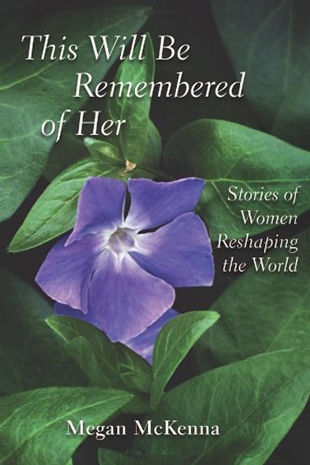"In the last one hundred years, we have devoured so much of the earth and its resources that we are stealing food and sustenance out of the mouths of our children and grandchildren, while we live without any compunction about the gulfs between those who are rich and those who are poor. The United Nations defines the rich as 'those who have more than enough to survive on today.' That defines many of us. And yet, the U. N. Food and Agriculture Organization reported recently that the number of hungry and undernourished people in the world reached an all-time high of 1.02 billion people, about 100 million more than in 2008. That's about 1 in 6 people in the world, or 15 percent of the global population.
"The issues of hunger and food are intimately connected to the issues of land, farming, and climate change that aggravates and intensifies these realities. For more than 70 percent of the people of the world, agriculture and land are fundamentally important: subsistence farming is their primary means of survival. The connections between food and land and farming and religion are moral and ethical realities that impact ritual and worship. And still, so many go underfed or unfed — a sad reality in a world that claims to be spiritually mature and where the major religions all proclaim the importance of pursuing justice, caring for the poor and the neediest, avoiding waste and excess, sharing one's possessions, and serving and preserving the earth's resources of land, water, and food.
"When Gandhi spoke of Christians and their ritual of the breaking and sharing of the bread, he commented, 'Your God was wise — he stayed among you as bread. If God had been Indian, he would have stayed as rice.' The earth, the land we dwell on, is God's original sanctuary, and how we handle the element of bread (the symbol, like rice or corn/maize, of sustenance) and the element of wine (the symbol, like water and milk, of feasting and celebrating) is more revelatory of our worship of God and the state of relationships within our communities than what happens in any other ritual of church worship. We sing the ancient psalm line over and over: 'Taste and see, taste and see, taste and see the goodness of the Lord.' But oftentimes we do so without gratitude, without sharing it with others, and without giving thought to what is left over or wasted.
"I will never ever forget being in Haiti and the Dominican Republic years ago, walking along one of the dirt roads, so thirsty, sipping water from a bottle I carried and chewing on a health-food bar that had the consistency of straw, and thinking to myself how awful it was. I had no sooner finished my fortified energy snack when I passed a woman with a baby on her back, about five or six months' pregnant, on her hands and knees along the side of the road. To my horror, I realized that she was collecting mud and making it into a small pie, patting it and spitting into it to hold it together. Then she sat in the grass and began eating it slowly. When I sat down with her and began talking with her, she told me that she was very careful about what dirt she ate — only dirt that was in a field, off the roads where people traveled and animals defecated. She wanted to be very careful since she was pregnant. I had heard stories about this gruesome reality, but seeing it broke open a place in me where rage could flourish. I gave her my other three energy bars, telling her that they were nutritional and would be good for her and the baby — the one on her back — if she could break it up so the baby could teethe on it. She smiled with such light and gratitude that I wept all the way back to where I was staying. Since then I have read that mud cakes — made of mud, salt, shortening, and sugar, or some mixture of these — have gone up steeply in price, and the hungry can't even afford them. They have acquired a name: pica."
